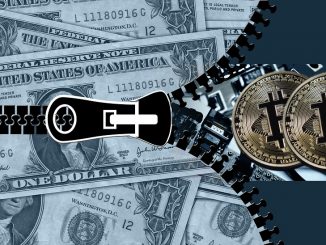According to the FBI, there were nearly 4,100 robberies and other thefts targeting U.S. banks and armored car companies last year, a pace of more than 11 every day. Many never even made the local TV news, and not a single bank customer lost a penny in any of them.
On the other hand, bitcoin aficionados who kept their stash at the Bitfinex exchange are taking a big hit from a big heist.
The Hong Kong-based exchange suffered what is said to be the second largest breach of a cryptocurrency exchange in the commodity’s relatively short history. The hackers who broke into Bitfinex last week stole about 120,000 bitcoins, valued around $78 million at the time of the theft and representing about 0.75 percent of all bitcoins currently in circulation. In the theft’s immediate aftermath, Bitfinex shut down trading and reported the theft to law enforcement. As of this writing, it is still unknown how the breach occurred, though the exchange’s U.S.-based security company BitGo has said its systems were not compromised.
In a clear illustration of the difference between a bitcoin exchange and a traditional bank, Bitfinex announced that it would “generalize” the losses from the theft across all of the company’s clients and assets – even those that were not directly affected by the original hack. In a statement, Bitfinex explained that all customers will see a generalized loss of about 36 percent when they next log in to the platform. “This is the closest approximation to what would happen in a liquidation context,” the company said on its website.
All affected clients will receive a “BFX” token crediting them for their losses. In theory, they will eventually be able to redeem the token to be made whole, or at least soften the blow. But there is no particular guarantee that this will be possible.
The Bitfinex heist is not the first, or even the biggest, case of bitcoin losses stemming from theft or malfeasance at a major exchange. Back in 2014, once-dominant bitcoin exchange Mt. Gox went bankrupt in the wake systemic security problems, culminating in the discovery that around 744,000 bitcoins had vanished without anyone noticing for years. To date, both bitcoin enthusiasts and law enforcement agencies have failed to pin down exactly what happened to the hundreds of thousands of bitcoins that vanished from Mt. Gox. Meanwhile, former Mt. Gox account holders have collectively claimed the loss of over $2.4 trillion – despite the fact that, according to The New York Times, the collective value of all bitcoins currently in circulation is only about $7 billion.
This discrepancy illustrates one of the fundamental characteristics of “cryptocurrency:” It utterly fails as a currency because it is an exceptionally poor way to store value. Bitcoin has experienced major spikes and declines in value more or less since its inception. In the wake of the Bitfinex breach, bitcoin’s price fell significantly, though this is only the latest major fluctuation. And not all bitcoins are created equal, either; after Mt. Gox closed but before its future was certain, the bitcoins locked up in its shuttered platform were worth only about one-sixth of bitcoins their owners could actually reach.
Bitcoins are worth money, but they are not money as it is traditionally understood. The Internal Revenue Service reached that conclusion a few years ago, and subsequent events have only strengthened that position. But this leaves the people who choose to park a substantial amount of money on bitcoin exchanges in an uncomfortable position, as customers of Mt. Gox and now Bitfinex have learned.
Users of ordinary banks in the United States have not had to worry about losses due to theft since the days of John Dillinger. Even though Federal Deposit Insurance Corp. insurance is limited, financial institutions are required to keep so much capital on their books that it is all but impossible for a physical robbery to impair an institution’s solvency. Electronic heists can, of course, be much larger – and there have been recent successes in compromising the global interbank cash transfer system that have created painful losses at the financial institution level – but the conventional banking system is anchored in both the solvency and the money-generating capacity of the world’s major central banks. I have a lot to say about how overregulation in banking is hurting the world economy, but for actual bank customers, the underlying structure is safe both in design and practice.
Certain people seem pretty dense about realizing that neither of these statements is true when it comes to bitcoin. Bitcoin is an article of faith, created anonymously, backed by nobody of consequence and tailored for financial activity that must be conducted in the same dark spaces where criminals like to operate. Of course it is a prime target, and it is turning out to be a poorly defended one, too.
Bitcoin addresses some real problems, but avoiding an overregulated financial system by fleeing to one with no oversight at all is not the answer. Banks and other financial firms have begun to consider blockchain – the crowdsourced community underlying bitcoin transactions – as a solution for cheaper and faster asset trades. And the appetite for a means to handle very small payments, or payments to unbanked individuals, may inspire new solutions within the traditional banking industry in the future.
For now, however, the legitimate uses of bitcoin are offset by the potential for catastrophic loss with no consumer safety net. Trading dollars for bitcoins is speculation, not currency exchange. The haircut facing Bitfinex’s users is only the latest object lesson.






Leave a Reply